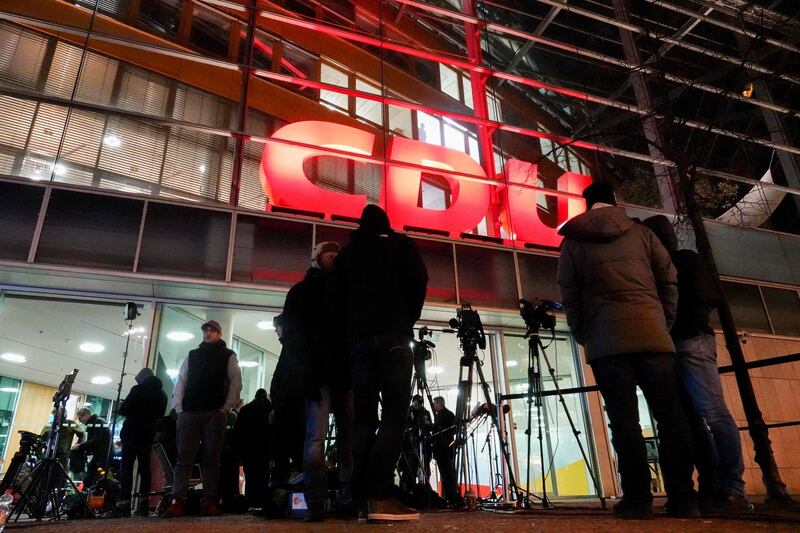German party talks on building chancellor Angela Merkel’s next government went into a third day of overtime as negotiators pushed for a breakthrough to end more than four months of political stalemate.
With a draft policy pact on the table, Ms Merkel and other top officials of her Christian Democratic-led bloc and the Social Democrats met deep into the night in Berlin to try to bridge remaining policy differences. A final decision isn’t expected until a larger group of 91 negotiators reconvenes around daybreak Wednesday, according to a party official involved in the talks.
Faced with Germany’s longest party deadlock since World War II, Ms Merkel cited turmoil in global markets as a sign that Europe’s biggest economy needs a stable government.
“We must not lose sight of the important points, when we look at the turbulent stock market developments of the last few hours,” Ms Merkel said Tuesday as she began what all sides say is the decisive round of talks. “We live in troubled times.”
With her fourth term at stake, SPD leaders are holding out for selling points to offer the party’s more than 460,000 members, who have the final vote on any coalition agreement. That increases pressure on Merkel to make concessions so Ms Merkel can win SPD approval for renewing the party alliance that has governed Germany since 2013.
“All of us will have to make painful compromises,” Ms Merkel said. “I’m willing to do this if we can ensure that the advantages outweigh the disadvantages.”
Germany’s benchmark DAX index declined 2.3 percent on Tuesday to the lowest level in almost four months and the Stoxx Europe 600 Index fell the most since June 2016. A topsy-turvy session for the S&P 500 Index ended with a 1.7 percent advance after Monday’s 4.1 percent slide.
German party talks ticked into overtime on Monday with the parties stuck on SPD demands to curb the use of temporary work contracts and end health-care advantages for privately insured patients.
Dietmar Woidke, the Social Democratic premier of the state of Brandenburg, said late Tuesday that talks remain on track. “We’re on the right path but we’re not done yet,” he told reporters.
Ms Merkel, 63, has governed as acting chancellor since her bloc won an inconclusive national election in September. Now, many SPD members are wary of another four-year tie-up, blaming two previous stints as junior coalition partner for the party’s electoral decline to a post-World War II low in last year’s election.
If the Social Democrats fail to team up with Ms Merkel, she would have to consider governing without a stable parliamentary majority or put Germany on track for another election, which polls suggest would turn out largely like the last one in September.






